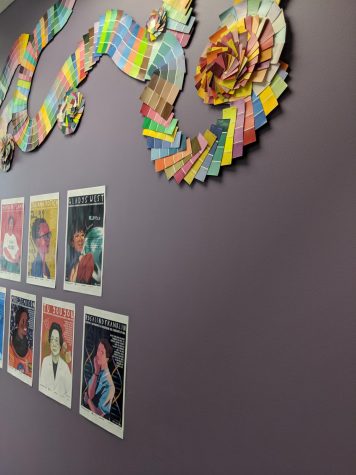Connecting with Incarcerated Writers – But I Still Soar

Zoé Orfanos once taught a convicted murderer how to use Google. She was volunteering with Offender and Restoration, a nonprofit in Arlington, Virginia. Currently, she continues her passion for prison reform teaching incarcerated men how to write poetry.
Orfanos doesn’t know her students’ alleged crimes at the Montgomery County Correctional Facility, and she doesn’t want to know. But the American University senior hopes she can make a difference in the lives of these men.
She said her first class went pretty well. Her students were attentive and excited. “Later my supervisor David Clearwater was saying it was probably because they think that any good skill they might have will make it so they won’t have to go back there [to jail],” Orfanos said.
Orfanos knows that the Montgomery County facility is well-funded and relatively safe for volunteers like herself. It houses pretrial offenders and convicted offenders with sentences of less than 18 months, and the facility offers what Orfanos called “alternative programming.”
“I passed a meditation class on the way in,” she said. Inmates can have their sentences reduced if they commit to classes like the one Orfanos teaches, an unusual system in an American jail.
“You really get to see a human side to these guys that not a lot of people see,” Orfanos added.
Over eight weeks, Orfanos will teach the basics of poetry, and the students will write poems using the devices they learn. In the first class they studied repetition. As a group, with Orfanos’ guidance, they brainstormed a poem about an unusual repeating element: a spoon.
“In what situation would a spoon be important enough to merit being in a poem?” Orfanos said. “We had the spoon at the beginning of our conceptual poem, you’re eating ice cream with your spoon in your house, and at the end you’re picking your spoon out of the ashes of your burnt house. And it was just devastating.” Despite the dark topic, Orfanos delighted in the students’ enthusiasm.
The incarcerated students aren’t allowed to write with normal sized pens because someone was once stabbed with a pen. “They issued small blunt pens.” Orfanos said. “I don’t know how a man with a giant hand can write with a tiny pen.”
Overall, Orfanos hopes her class is a small step toward larger prison reform. With many inmates returning back to jail, the U.S. has what Orfanos called a “broken system.”
Her goal is to show one or two of her students that they can write, that they have a skill and are good at something.
“One guy asked me last class, can you study poetry in college?” Orfanos said of her first, small victory.






